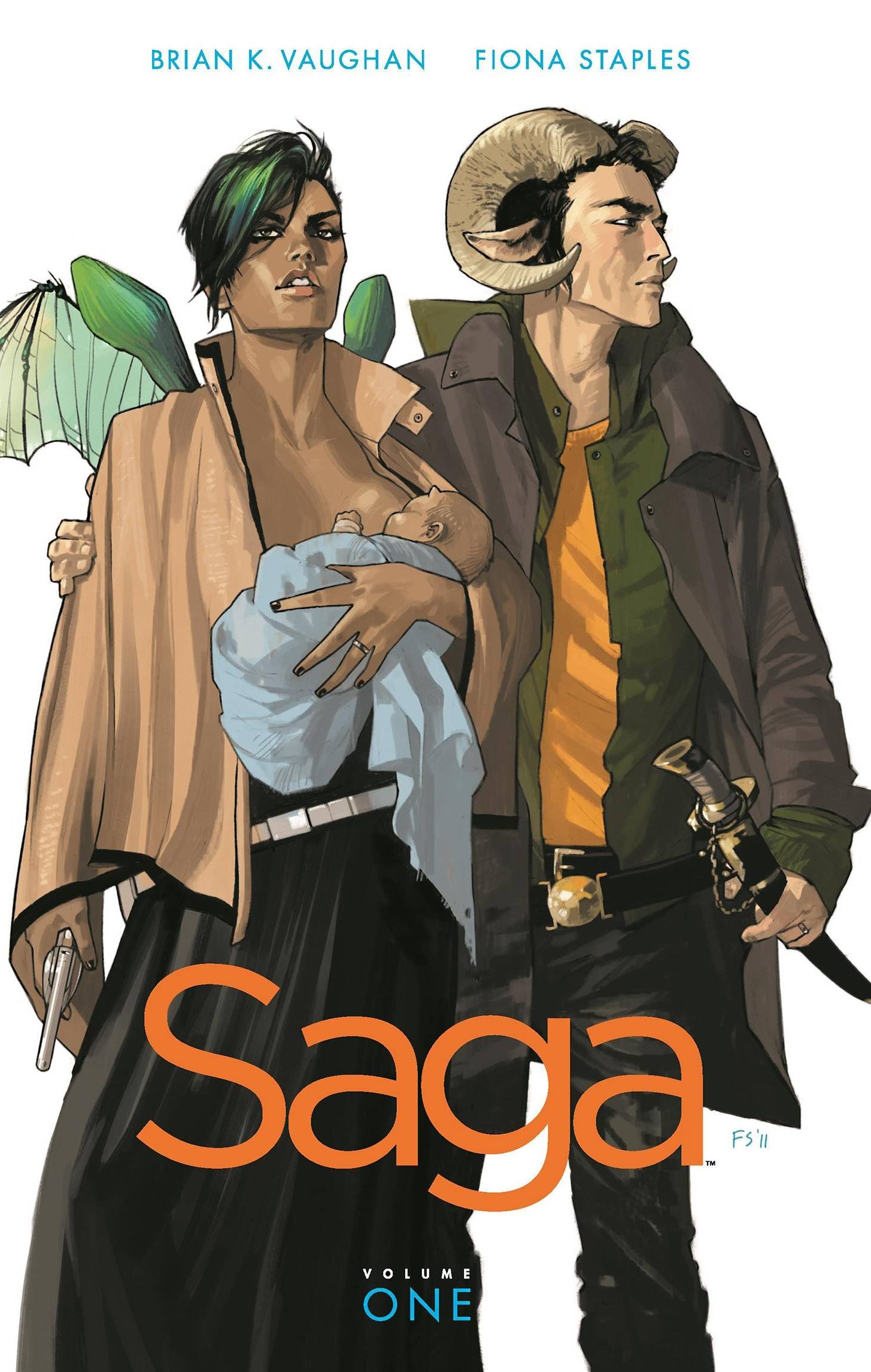On Thursday night, I came across a social media post from a distraught parent who had visited the Bangalore Comic Con 2018 held on 17-18 November at KTPO Trade and Convention Centre, with her eight-year-old daughter.
The reason for her distress and anger was the goody bag that was provided to people who bought online passes for Comic-Con. The child received her goody bag and in which were exclusive promotional materials from food to wristband to comics. The comics in controversy is Saga, a critically acclaimed series, an epic narrative set in an intergalactic realm, created by Brian K. Vaughan and Fiona Staples. Saga uses art and language which primarily cater to adult readership.
The said complaint was that child safety rules have been violated as the comics did not come with adult marker/stickers. In general graphic novels with adult content come with age warning which is just above the ISBN or the barcode or the spine or one corner of the cover. But these copies were especially published for Comic-Con, hence they didn’t have a barcode or ISBN and no adult marker.
This missing marker is an act of irresponsibility and mistake on part of Comic-Con organizers. Comic-cons are a new venture in India and are primarily for adult readers, and cosplayers, and comic companies, catering to an audience that cultivate the passions for sequential art and narratives. If children are a constant audience to these events, separate goody bags for children with age-appropriate comics should have been thought of by now.
Comic-con authorities who have since apologised to this blunder, have been charged under Section 292 of the Indian Penal Code for selling obscene books. The complainant in her Facebook post has called the book pornographic.
Here is where as an ardent reader of comics and someone who has read all the 53 Issues of Saga, I would like to add: Saga has art which has shown breastfeeding on its first cover, it has shown inter-race sex, it has murders, wars, tyrants and a lot of brutality – but all of it for a narrative that requires it.
This book is for adult readership and it not pornographic simply because it has nudity in it. The concerned parents who have been commenting on the Facebook post have been constantly berating the series without ever reading it, some have questioned why such books are allowed to be published, and some even called it a Western agenda to spoil “our culture”.
Every parent has the responsibility to protect her/his child and of course an eight-year-old finding a book that has sexual act drawn on it might be shocked. This was a mishap, an error of foresight and lack awareness on part of organisers and parents who did not check the goody bags.
The attitude towards comics all over the country is infantilising; Tinkle, Amar Chitra Katha and Calvin, and Hobbes are the poster children of comics in India for people who don’t delve into this genre.
The handling of headlines for this story was badly researched, and cashing in on the word pornography and child, one news site is calling it porn-con!
Calling authorities in action to check is a must, but to force anything sexual in its content under the label of pornography is puritanical and medieval in approach. Disinterest and lack of awareness regarding the subject has led people to label and typecast it. Seen in this light, even Game of Thrones should be first put on a pyre built by terrified parents of young adults.
And if we are to protect every child’s innocence, we must first call out every other body lotion advertisement on television that almost fragments a woman into torso, arms and legs, a mango juice commercial that focuses on the lips and chest of a woman, the “massage lady for hire” neon-coloured posters on the streets, obscene words written on public toilet walls and even the horrifying content of news channels.
We have to be aware of the context of contents before we label them. Remember, what was once seen as a story of alleged obscenity, Ismat Chughtai’s Lihaaf is now known as a tale of female empowerment and desire.
[The views expressed belong solely to the author, and may not reflect the opinions of the editorial team]


Comments are closed.